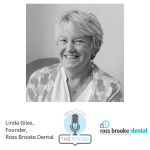Newly qualified dentists have the opportunity to make the best possible start to their life in business with the support of specialist dental accountants Ross Brooke Dental. The firm is offering to provide five young associate dentists with a year of accountancy and business advice at a heavily discounted rate. Normally worth £600+VAT, Ross Brooke Dental (RBD) will charge just £200 per dentist which they will donate to the BDA Benevolent Fund.
RBD has chosen the Charity because of its inspiring role in supporting dental students, dentists and their families through hard times. In 2023 the BDA Benevolent Fund is celebrating its 140thanniversary.
RBD is one of the few accountancy firms which is exclusively dedicated to dentists and believes in providing a service which is highly customised, taking dentists from early years to retirement.
Nathan Poole, who has worked with dentists for more than 15 years, said: “The first year as an associate dentist in practice isn’t easy. You must start paying back your student loan, submit your first tax return and decide what kind of business structure will suit you. Ideally, you should have specialist advice to help you navigate these challenges.”
RBD founder Linda Giles added: “In nearly 30 years as a specialist dental accountant, all the clients who started out with me stayed with me. It’s a relationship of great trust.”
Nathan and Linda are both great fans of the BDA Benevolent Fund and they hope to have enough dentists entering their award to make a donation of £1000.
Laura Hannon, Chief Executive of the BDA Benevolent Fund, commented: “The Charity often receives requests for support from newly qualified dentists during the transition phase from graduating to starting their training and again, once they have finished their Foundation Training and become Associates. It’s two periods of change in a short time frame and not everyone has the financial or wellbeing support systems in place to help them manage.”
“We are very happy that RBD have chosen to donate to the Charity enabling us to offer greater levels of support to the dental profession. We hope this contribution will help raise awareness of the role the Charity plays for those that need it as well as the importance of good money management skills that experienced professional advisors can bring.”
To qualify to become a client of RBD from October of this year to April 2024, covering the submission of your first tax return as well as an initial meeting to sort out your business affairs, you should answer the following questions on the RBD website:
Q 1: Who does the BDA benevolent fund help? (tick all the options that apply):
1. Older dentists
2. Young dentists
3. Members of the public
4. Dental students, dentists, and their dependents.
Q2 Why do I need a specialist dental accountant?
1. Because I want peace of mind that I am using experts to get my taxes right.
2. Because getting good advice from the start works out cheaper than fixing a mess later.
3. Because I want to make sure I have done everything I need to do.
4. Because building a team of advisers I can trust and who understand me and my circumstances is the right way to do business.
To enter, visit: https://www.ross-brooke-dental.co.uk/blog/news/rbd-initiative-to-support-new-dentists-and-the-bda-benevolent-fund/
For more information on the BDA Benevolent Fund visit https://www.bdabenevolentfund.org.uk/ or contact 0207 4864994.











